Home » Biographical
Category Archives: Biographical
Indian friends and admirers of Swami VIvekananda
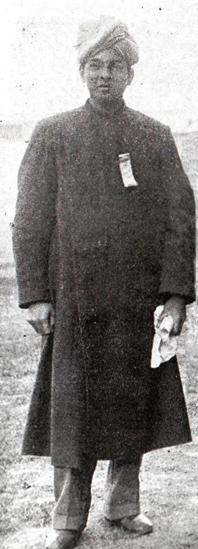
Others on Ramakrishna
Protap Chunder Mazoomdar
Taken from an article written by Protap Chunder Mazoomdar, which appeared in the Theistic Quarterly Review, October, 1879.
Brother disciples on Ramakrishna
Shivananda on Ramakrishna
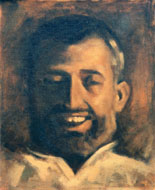
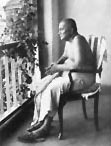
When I first began to visit Sri Ramakrishna, I often felt like crying. One night at Dakshineswar, by the bank of the Ganges, I wept to my heart’s content. In the meantime the Master had been asking for me. When I returned to his room, he said: ‘You know, if you weep before the Lord, your tears wipe out the mind’s impurities of many births, and his grace immediately descends upon you. It is good to weep before the Lord.’
“Another day I was meditating at the Panchavati. I was absorbed. Sri Ramakrishna was returning from the pine grove. When he looked at me, I began to sob. The Master stood beside me without uttering a word. A thrill went through my heart, and I began to tremble uncontrollably. Later I followed the Master to his room. He remarked to someone about my weeping: ‘These are no ordinary tears; they are tears of ecstasy.’ Then he made me sit near him and gave me something to eat. It was so easy for him to awaken the kundalini in us—without even a touch, just by his presence.”
Questions and answers
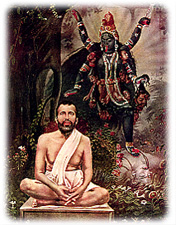
Q and A posed to Ramakrishna
Below are questions placed before Ramakrishna at various times and his answers:
Q. How to find God?
A: By the conquest of lust and gold.
Q:Is God Personal or Impersonal?
A: He is both, and yet He is beyond both; beyond any intellectual or theological dogmas. He is manifest to the soul in its own inmost realization. He assumes any form for the pleasure of His devotee. He is inexpressible. . . . He is not to be found between the covers of a book or within the walls of a temple.
Sermons
Differences between worldly men and the monk
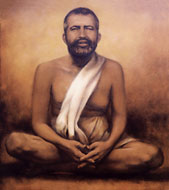
However much you may wash the pot where garlic has been kept, still some smell will linger. The boys are pure. They are as yet uncontaminated by any idea of lust and gold. You have seen mangoes that have been pecked by crows. Such mangoes cannot be offered to God or eaten by man. The devotees who have tasted worldly pleasure belong to another group.
A group of monks was seated together thinking of God. Some women passed by. One of the monks opened his eyes wider and cast oblique glances at them: he had renounced the world after being the father of three children. You cannot expect figs from thistles. Worldly men have no leisure to think of God; but do you think I hate them? No, not at all. I find God has become all these. I look upon all women as my Mother. So I find no difference between a chaste woman and a girl of ill fame. . . . I find everyone seeks glass beads: no one wants diamonds. Man is enchanted by lust; he is caught by the glamour of riches; but to one who has seen God, these are worthless trifles. Someone said to Ravana, “You go to Sita assuming all sorts of forms in order to intimidate or seduce her. Why don’t you take the form of Rama so that she may take you for her husband?” Ravana replied, “If I meditate on Rama, even the moat exquisite beauty of the world appears as mere straw.”
Devotion to God is impossible without purity of heart. An impure man cannot have single-minded devotion. His mind is diverted to various things. You cannot expect anything when you are attached to lust and gold. It is extremely difficult for a worldly man to be perfectly unattached. He is a slave to his wife, slave to his money, and slave to his master.
Teachings of Sri Ramakrishna
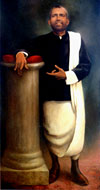
(1884) Sri Ramakrishna was in his room at Dakshineswar surrounded by disciples, including Naren.
The Vaishnava religion.
This religion enjoins upon its followers the practice of three things: relish for the name of God, compassion for all living creatures, and the service of the Vaishnavas, the devotees of the Lord. The real meaning of these precepts is this: God is not different from His name; therefore one should always repeat His name. God and his devotee, Krishna and the Vaishnava, are not separate from one another; therefore one should show respect to all saints and devotees. Realizing that this world belongs to Shri Krishna, one should show compassion to all creatures.”
Hardly had he uttered the words “compassion to all creatures”, when he went into Samadhi. After a while he came back to a semiconscious state of mind and said to himself: “Compassion for creatures! Compassion for creatures! You fool! An insignificant worm crawling on earth, you to show compassion to others! Who are you to show compassion? No, it cannot be. Not compassion for others, but rather the service of man, recognizing him to he a veritable manifestation of God.”
Comments to his disciples
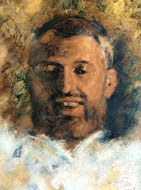
Ramakrishna said to his disciples:
There are many opinions and many ways. I do not like them any more. The aspirants of different ways quarrel among themselves. You are my own people. There are no outsiders here. I tell you, I clearly find that He is the whole and I am a part of Him. He is the Lord and I am the servant. Again sometimes I think that He is I and I am He.